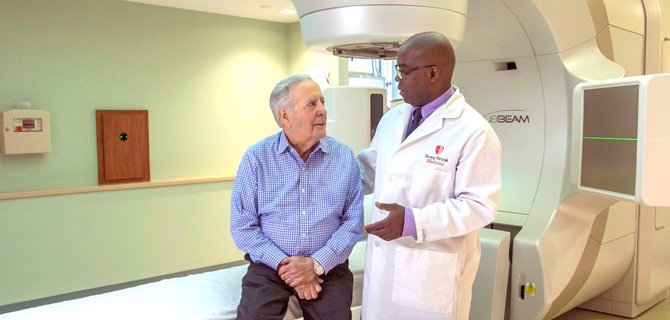The relationship between diet, nutritional status, and cancer in both adult and pediatric patients is an evolving field of study. Nutrition plays an important role in cancer prevention, supportive therapy during cancer treatment, and survivorship. Registered dietitians, who specialize in the care of oncology patients, are committed to the philosophy of early intervention for nutritional problems.
Nutrition experts are available to counsel patients and their families about appropriate strategies for eating. It is important that patients eat a nutritionally adequate diet since poor nutritional status may contribute to cancer risk, may decrease treatment tolerance, and may affect cancer recurrence risk. Individuals are assessed based on their unique medical and family histories, lifestyle factors, and personal goals. With the patient, a nutrition plan is devised to help achieve these goals. The dietitian will provide the patient and/or the caregiver with individualized, practical written information and verbal counseling.
A registered dietitian assesses each inpatient. Inpatient nutritional services focus on patients receiving optimal nutritional intake during their hospital stays. Special attention is given to patients to ensure that foods they will enjoy eating are made available. Patient meals are now provided by a "room service" system where the patient can simply call and request meals from a restaurant-style menu. An executive chef oversees all food preparation. The room service component is particularly important because it allows patients to request meals when they feel like eating, rather than having food delivered at a prescribed time. At the time a patient is discharged, a registered dietitian provides nutrition education to help the patient continue to maintain adequate intake.
Outpatient nutrition services focus on developing and maintaining an eating strategy for patients undergoing cancer treatment. The goal during treatment is to minimize side effects patients may experience that hinder nutritional intake. These patients are monitored continually and plans are modified as necessary. Counseling is also available for patients interested in reducing cancer recurrence risk. Registered dietitians provide follow-up care, in addition to nutritional education to the community through counseling, community support groups, and community education programs.


